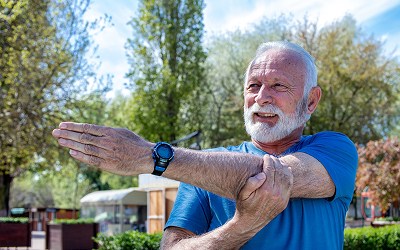We've all had those moments, gazing out a window, dreaming of fantastical abilities – flight, underwater breathing. While we may not possess superpowers, nature has provided us....
Read MoreUC-MSCs and Alzheimer's

Alzheimer’s disease, a devastating neurodegenerative condition, robs individuals of their memories and cognitive abilities. At Happy Valley, we’re keenly interested in exploring innovative therapies that offer hope for those affected by this disease.
The hallmark of Alzheimer’s is the accumulation of amyloid-beta (Aβ) plaques and tau neurofibrillary (P-tau) tangles in the brain. These disrupt communication between neurons,leading to cell death and brain shrinkage. While current medications can slow progression and manage symptoms, they cannot reverse the damage
Enter Exosomes: Nature's Cellular Messengers:
Exosomes, tiny vesicles released by neural stem cells (NSCs), act as messengers, facilitating communication between cells. Their ability to cross the blood-brain barrier makes them a promising avenue for treating brain-related diseases.
A recent study investigated the potential of NSC-derived exosomes (NSC-exos) to protectagainst Alzheimer’s disease.
The Study's Approach:
Researchers cultivated human neural stem cells and collected the exosomes they released. These NSC-exos were then introduced into a neurodegenerative disease culture model.
The study examined:
- The activity of enzymes involved in Aβ and p-tau production.
- Levels of Aβ and p-tau in treated cells.
- Gene expression related to Alzheimer’s disease.
- Protein levels in treated cells.
- Inflammatory marker levels.
- Cell viability.
Key Findings:
- NSC-exos significantly reduced enzyme activity, suggesting a protective effect against Aβ and p-tau formation.
- Gene expression analysis showed downregulation of Alzheimer’s-related genes.
- ELISA results revealed lower Aβ and p-tau levels in treated cells.
- Treated cells exhibited increased longevity.
- NSC-exos reduced inflammation and downregulated risk-factor pathways.
What This Means for Alzheimer's Treatment:
The study suggests that NSC-exos can effectively combat neuroinflammation and neurodegeneration by modulating key pathways and reducing toxic protein buildup.
NSC-exos appear to exert their effects by enhancing beneficial gene expression and suppressing harmful genes, while also reducing inflammation.
Compared to direct stem cell therapies, NSC-exos offer advantages such as lower immunogenicity, reduced tumor risk, and easier production, storage, and administration.
Clinical Implications:
This research highlights the potential of NSC-exos as a clinical application for Alzheimer’s disease, demonstrating their ability to reduce Aβ and p-tau levels, lower neuroinflammation, and improve cell survival.
While further research is needed to fully understand their clinical applications in humans, these findings offer a promising glimpse into the future of Alzheimer’s treatment.
Happy Valley's Commitment:
At Happy Valley, we are dedicated to exploring cutting-edge therapies that enhance brain health and combat neurodegenerative diseases. We are excited by the potential of stem cell-derived exosomes to offer hope for individuals affected by Alzheimer’s disease.
Works Cited:
Khan, M.I., Jeong, E.S., Khan, M.Z. et al. Stem cells-derived exosomes alleviate
neurodegeneration and Alzheimer’s pathogenesis by ameliorating neuroinflammation,
and regulating the associated molecular pathways.
Sci Rep 13, 15731 (2023). https://doi.org/10.1038/s41598-023-42485-4
You Might Also Like
The many benefits of MSCs on bone flaws and cartilage damage
It’s just a fact of life that as you get older, pains start to creep up in places they didn’t used to be. Joints begin to ache from just a little use, and getting up from your favorite chair, or...
Read MoreEmbracing Graceful Aging: The Role of UC-MSCs
As we navigate the journey of aging, maintaining vitality and well-being becomes paramount. At Happy Valley, we're exploring innovative approaches to support healthy physical aging.....
Read More


